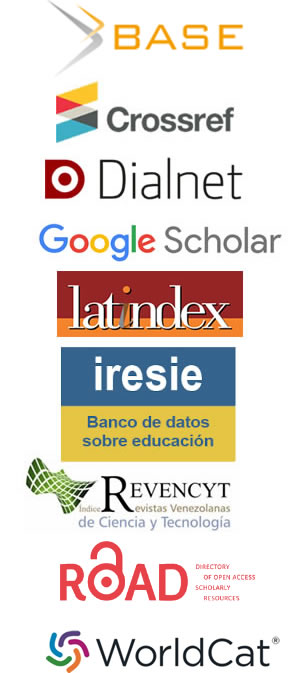Didactic proposal in mathematics education for students with disabilities in higher education
Abstract
In the Mexican education system, there are rules, laws and regulations that favor educational inclusion. The attention to students with disabilities presents various barriers to learning and participation that limit the exercise of their right to receive an inclusive, equitable and quality education, a situation that presents particular challenges at the higher level. A key element present in this process is the teacher and his perception of not having enough preparation or support to meet the needs of this student population. The problem intensifies when the management of complex and abstract content such as those existing in mathematics and related subjects is involved. This paper presents an exploratory and descriptive qualitative study focused on models of educational inclusion to develop a proposal for attention to students with disabilities for subjects in the area of quantitative training at higher level. The proposal provides teachers with intervention suggestions with the aim of supporting their teaching practice to reduce or eliminate the barriers to learning and participation present in the educational context of students with disabilities. Likewise, the work suggests developing measurement instruments that provide information on the effectiveness of their implementation. The importance of following up on the interventions carried out is highlighted, as well as the need to permanently train teachers in educational inclusion, which will help to improve teaching practices not only for the benefit of students with disabilities but also for the student population in general.
Copyright (c) 2024 Xóchitl Fuentes Uribe, Ana Torres Mata, Laura Plazola Zamora, Sara Leticia Marín Maldonado

This work is licensed under a Creative Commons Attribution-NonCommercial 4.0 International License.
Copyright notice
Copyright allows the protection of original material, and curbs the use of others' work without permission. UNESCO IESALC adheres to Creative Commons licenses in the open access publication of ESS. Specifically, texts published in this journal are subject to a Creative Commons Attribution-NonCommercial 4.0 International (CC BY-NC 4.0) license: ESS is an open access journal, which means that all content is freely available to the user or their institution. Users may read, download, copy, distribute, print, search or link to the full text of the articles, or use them for any other lawful purpose, without asking prior permission from the publisher or the author, always making sure to cite the author. Commercial use is not permitted. ESS requires authors to accept the Copyright Notice as part of the submission process. Authors retain all rights.
The full license can be found at https://creativecommons.org/licenses/by-nc/4.0/
 Attribution - NonCommercial (CC BY-NC 4.0)
Attribution - NonCommercial (CC BY-NC 4.0)
This journal does not charge authors for the submission or processing of articles. The authors of the contributions will receive acknowledgment of receipt that the work has reached the Editorial Team of the Journal.





